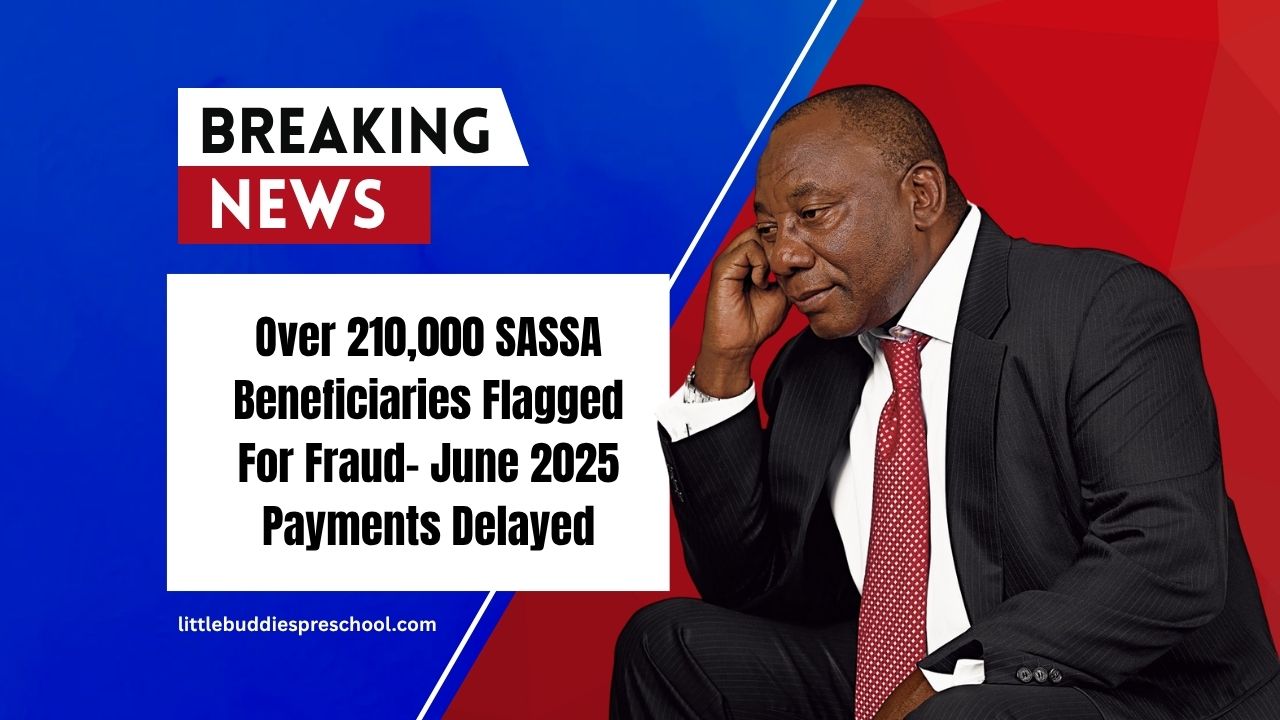In a significant move to uphold the integrity of South Africa’s social grant system, the South African Social Security Agency (SASSA) has identified over 210,000 beneficiaries who failed to disclose their income truthfully.
This discovery, made in collaboration with registered credit bureaus, has led to the postponement of their June 2025 grant payments.
Key Details of the Fraud Investigation
SASSA’s investigation revealed that approximately 210,000 beneficiaries were receiving additional income not reported during their grant application or after approval.
This non-disclosure violates the Social Assistance Act, which mandates beneficiaries to declare all income sources and report any changes in their financial circumstances.
The agency emphasized that failure to comply with these requirements constitutes a breach of the Act and may result in corrective action, including suspension or permanent termination of grants.
Mandatory Grant Review Process
Affected beneficiaries are required to present themselves at their nearest SASSA local offices for a grant review within 30 days from the notice date, in line with Regulation 30 of the Social Assistance Act.
Failure to comply with this process may lead to the suspension of grants, and continued non-compliance could result in permanent lapsing of the grants.
Scope of Affected Grants
While SASSA has not specified which provinces have the highest number of fraudulent cases, the crackdown affects various types of grants, including:
- Old Age Grant
- Disability Grant
- Child Support Grant
- Foster Child Grant
- Care Dependency Grant
- Grant-in-Aid
- War Veterans Grant
This initiative aims to ensure that beneficiaries update their financial and personal details, addressing potential inclusion errors in the social security system.
SASSA’s Measures to Prevent Future Fraud
SASSA is encouraging all beneficiaries to:
- Disclose any alternative sources of income and report any bank accounts not previously declared.
- Replace green bar-coded ID books with the smart ID card, due to the increased risk of fraud associated with the older ID format.
The agency has reaffirmed its zero-tolerance approach to fraud. Should evidence emerge of any officials colluding with beneficiaries to defraud the system, immediate disciplinary and legal action will be taken.
Overview of the Situation
| Aspect | Details |
|---|---|
| Number of Beneficiaries Affected | Over 210,000 |
| Reason for Action | Failure to disclose additional income |
| Legal Framework | Social Assistance Act and Regulation 30 |
| Action Required | Mandatory grant review within 30 days |
| Potential Consequences | Suspension or permanent termination of grants |
| Preventive Measures | Disclosure of all income sources; upgrade to smart ID cards |
| SASSA’s Stance on Fraud | Zero-tolerance; disciplinary and legal action against collusion |
SASSA’s recent actions underscore its commitment to maintaining the integrity of South Africa’s social grant system. Beneficiaries are urged to comply with the review process and ensure all information provided is accurate and up-to-date.
FAQs
What should I do if I received a notice from SASSA regarding income discrepancies?
You must visit your nearest SASSA office within 30 days of the notice to undergo a grant review. Bring all relevant documentation about your income sources.
What happens if I fail to comply with the grant review process?
Non-compliance may lead to the suspension of your grant, and continued failure to act could result in the permanent termination of your grant.
Why is SASSA urging beneficiaries to switch to smart ID cards?
The green bar-coded ID books are more susceptible to fraud. Upgrading to a smart ID card enhances security and reduces the risk of identity-related fraud.

